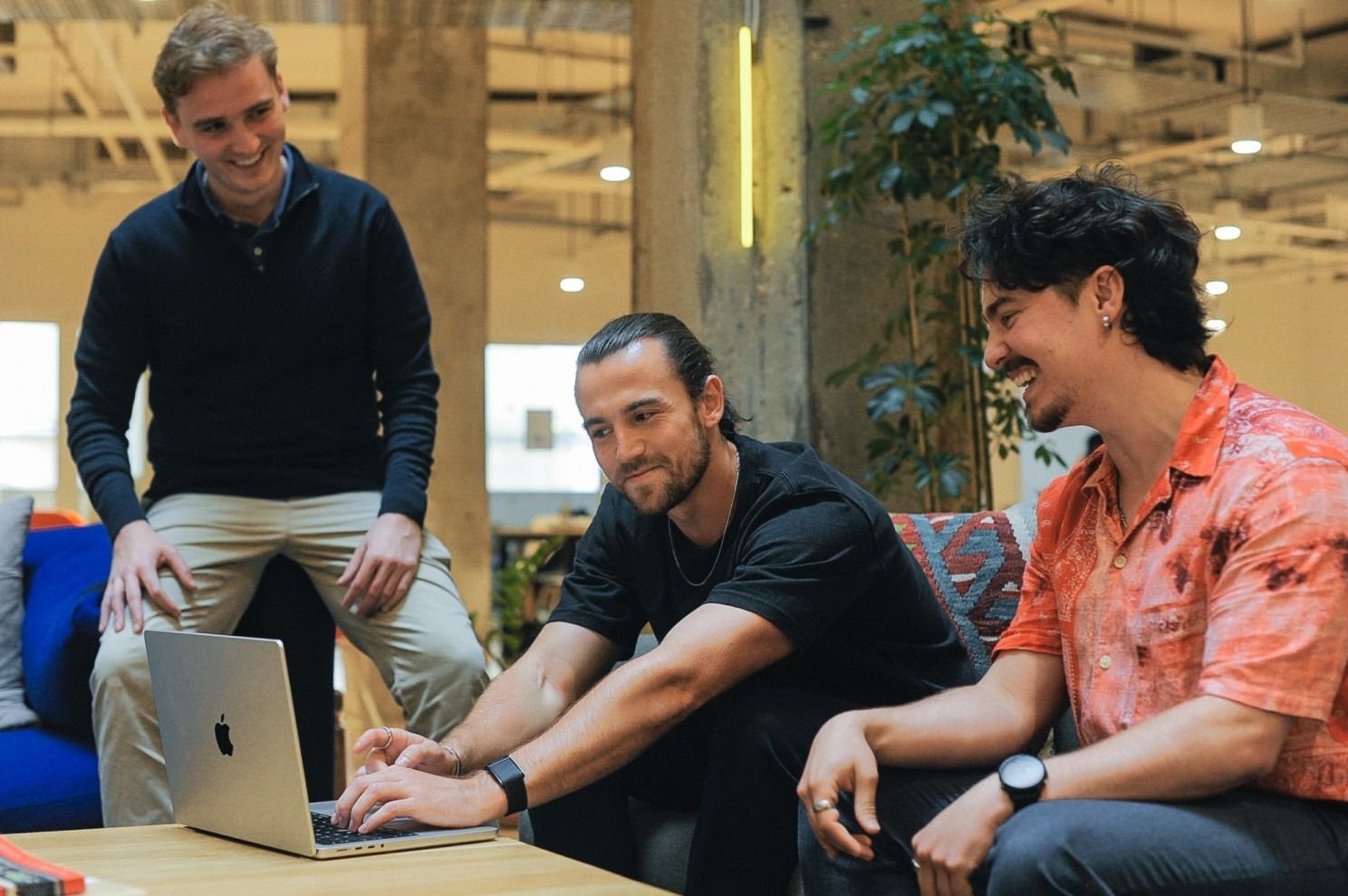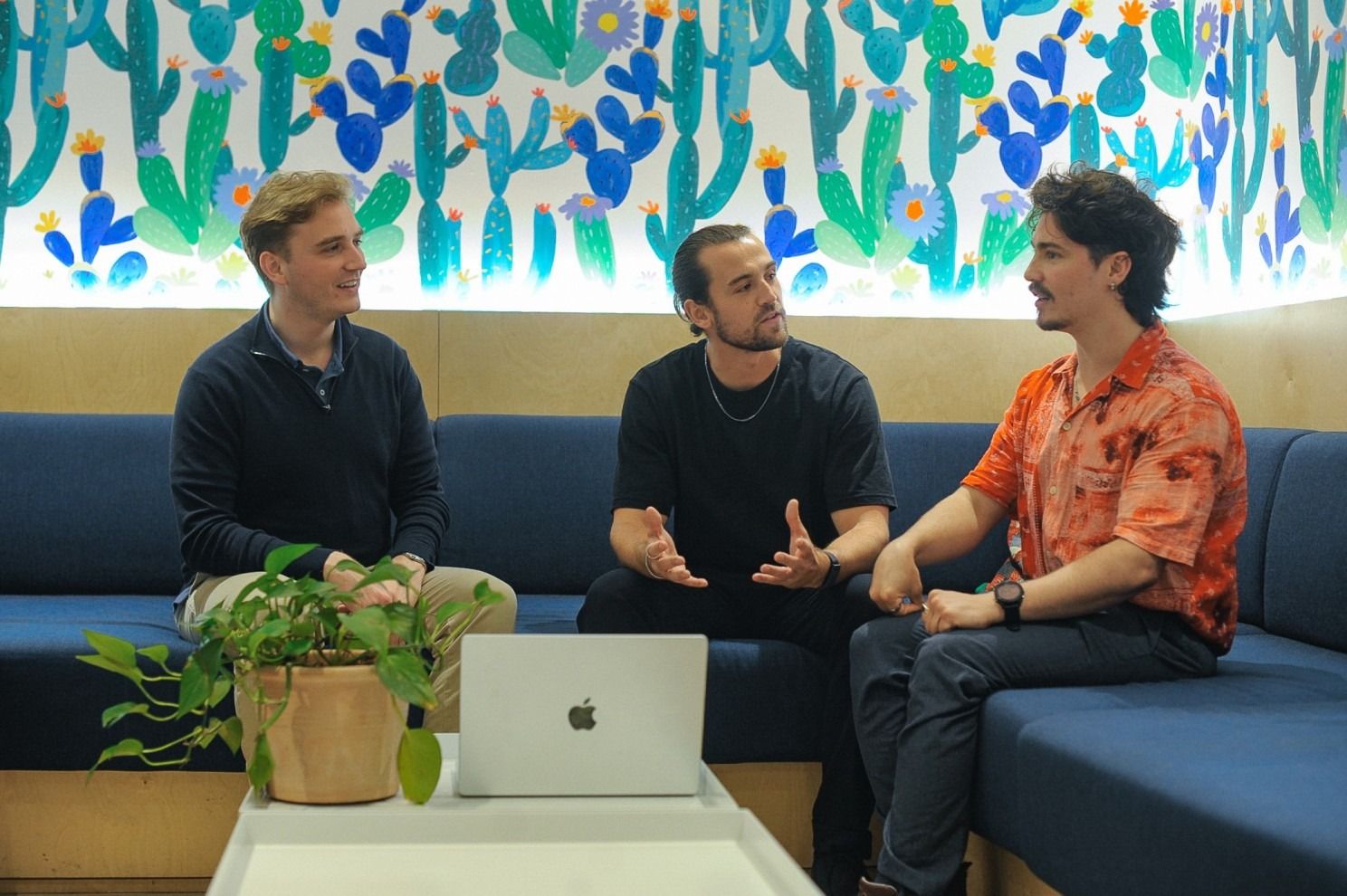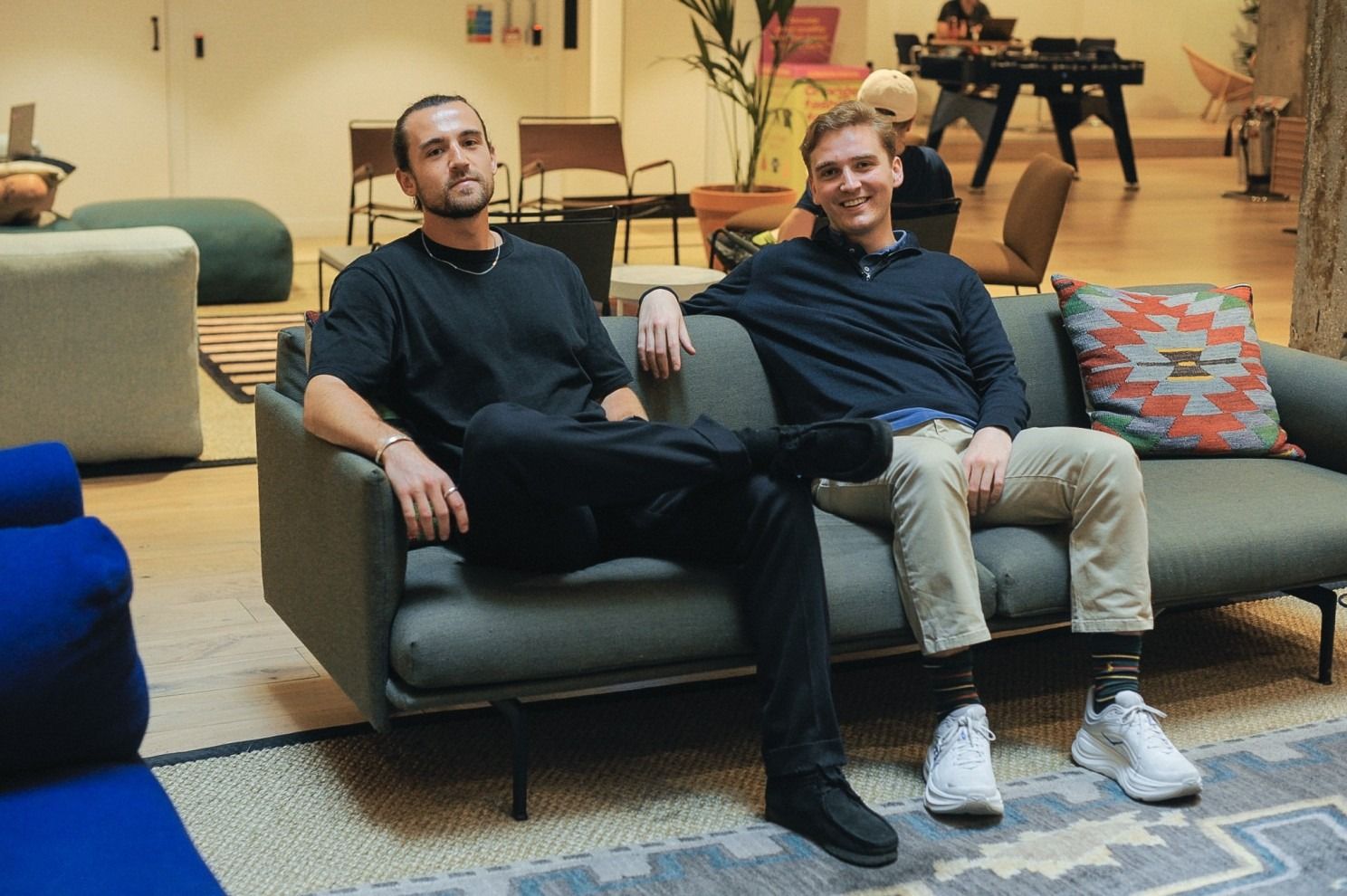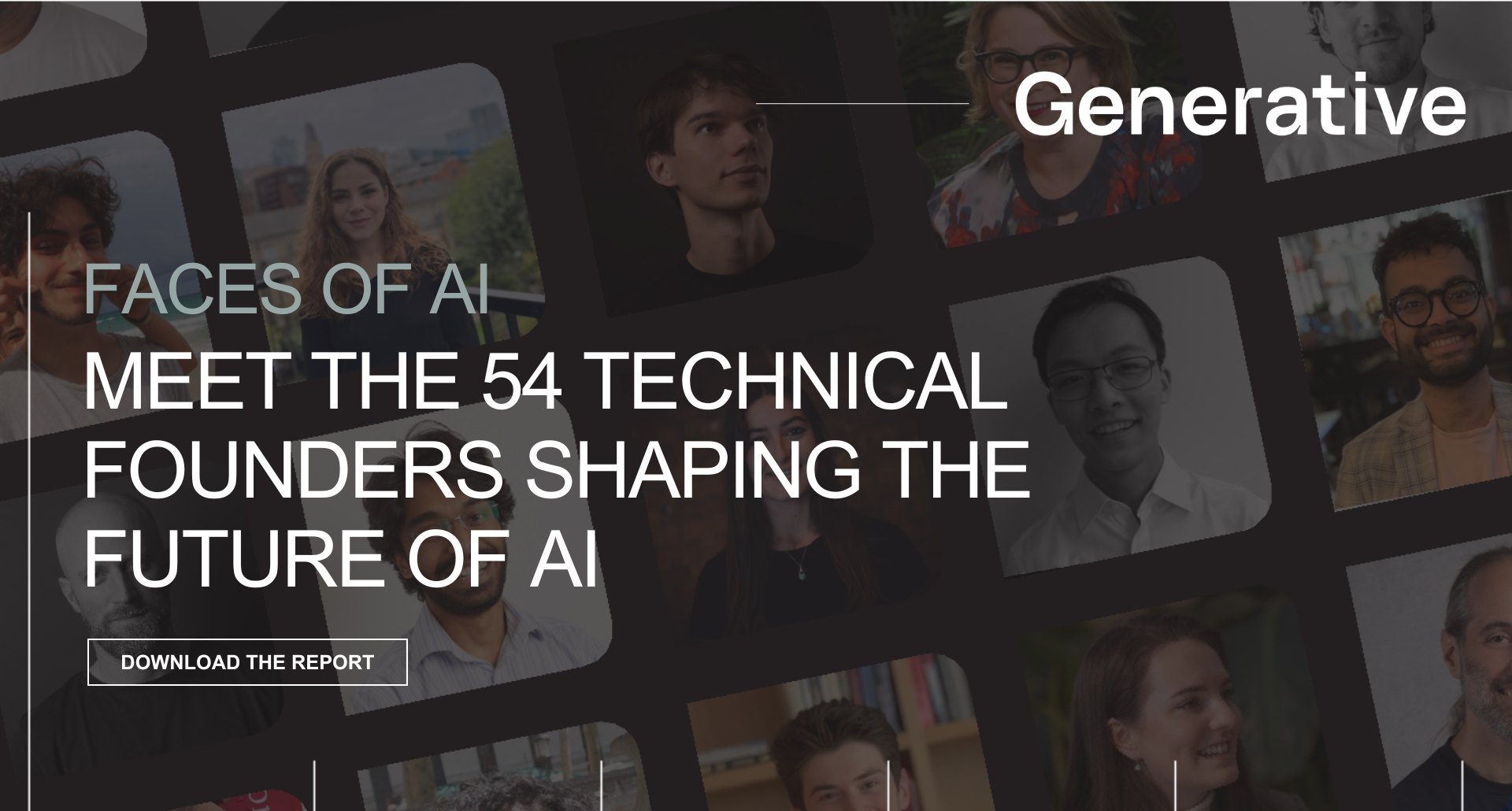“Emma Is More Than a Name” Building Health and Social Care AI To Become a Trusted Colleague
06 Aug 2025
Plenty of startups talk about vision. But at Emma, George Parry and Charles Cross have been putting in the work to turn that vision into results.
In Part 2 of our interview, the co-founders dig into the practical realities of building AI for health and social care – from naming a product that people trust, to building in public, solving deep technical challenges, and getting the right people on board.
What has been the biggest challenge in bringing an AI product like yours to market?
GEORGE: I think the biggest challenge we’ve tackled has been engineering the deep tech at the heart of Emma. Specifically, how you build a system where any user can ask any question, about any part of their data, at any time, and get an output in whatever format they need. That’s been our hardest technical problem, but also the thing driving our growth.
Another major challenge we’ve come up against is the issue of interoperability in health and social care. A lot of technology companies treat patient data as their moat – even though it’s not their data to own, it belongs to the end user. But technology companies ring-fence it because it protects their business, which creates huge barriers to delivering best in class care.
That was a real blocker for us 12 months ago, but it’s something we’ve worked through. And as we move forward, Emma will be the opposite of that: an open platform anyone can connect to and from. With AI, you don’t need rigid connections in the way you did before. Data transfer can be far more flexible, and if you structure your business the right way, you don’t need to rely on controlling patient data as your competitive advantage.
And on a similar note, another challenge (but one we’re proud to be solving) is around building flexibility into the product itself. For too long, a handful of tech companies have effectively dictated how care companies operate through rigid tooling. That needs to change. What we’ve worked hard to do is create a platform that’s flexible enough for a small local care team or a national provider to configure it in a way that works for them.
CHARLES: One of the biggest challenges has been bridging the gap between initial excitement around AI and real-world impact. There's a clear distinction between B2C and B2B AI – with B2C tools like ChatGPT, users expect something plug-and-play. But in a regulated, human-centred sector like care, that approach doesn’t work.
Our focus has always been on making AI safe, ethical, and genuinely useful in context. That’s why we built Emma with a partnership model from day one. We work closely with providers to deeply understand their goals, and we feed that directly into the product. Building in public sounds great in theory, but actually doing it means staying open to feedback, iterating fast, and being okay with tough conversations.
Another big challenge has been managing the shift from vision to validation. When we launched, we knew we had a compelling idea. But turning that into a proven, valuable tool takes time, trust, and results. We're proud to now be delivering measurable outcomes for providers and showing how AI, done right, can drive real change in care.
Can you share a bit more about what that name ‘Emma’ represents and what kind of relationship you hope users have with the product?
CHARLES: We thought long and hard about what to call the product. We considered technical names, ones that sounded futuristic… but none of them really captured what we were trying to build. In the end, we landed on “Emma” because it felt human, familiar, and supportive.
Emma is designed to feel like someone in your corner – the colleague you trust, who knows your service inside out and is always there to help. Whether you’re a care worker, a manager, or C-suite, Emma should feel like part of your team: reliable, knowledgeable, and easy to work with.
That sense of safety and consistency is something we heard again and again from people delivering care. They didn’t want some dashboard or generic system. They wanted something that felt personal; something they could rely on every day. That’s what the name Emma represents.
How has the talent attraction process been so far for you?
GEORGE: The team is quickly growing at the moment – it’s an exciting time for us!
I’ll be honest – we’ve been on a journey with our talent attraction. At first, we tried going it alone and didn’t have much success. We then partnered with Generative and it’s been a completely different experience. The calibre of candidates they’ve brought in has been brilliant. Everyone they’ve introduced us to understands the mission we're on, they challenge our thinking in a good way, and there’s a real alignment in those conversations.
What’s made it work so well is that Generative is a startup too – so they just get it. They understand how important these early hires are and how quickly things need to move. Working with them has made the whole process so much easier and more effective.
In terms of AI trends, what’s exciting to you – and what do you think is overhyped?
GEORGE: For me, the most exciting trend in AI right now is the development of agents.
At Emma, our product development has involved exploring ideas through R&D – and often discovering that the underlying models just aren’t ready yet. And this is exactly the right space to be: where you’ve got the vision and the solution, but the models haven’t quite caught up yet.
Agents are a great example. As complexity increases (more tasks, more tools, more agents in the network) the chances of failure or an incorrect output also go up. That’s why they haven’t been truly viable until now, especially in healthcare where the stakes are high. But with Claude 4, Gemini 2.5, and no doubt OpenAI’s next release soon, we’re seeing real leaps in capability.
As foundational models get better, agents will shift the fundamental business model – and I think that’s massively exciting. It’s not overhyped. It just hasn’t been possible until now.
And what’s overhyped? Point solutions that inject AI into parts of a workflow without rethinking the bigger picture. You might get a flashy demo and a slight productivity gain, but you’re not tapping into what this technology can really do.
And more technically, there’s a question around the current scaling approach for training large language models. There's been commentary, like from Hugging Face’s CEO, asking how far we can keep scaling these models before we need a different breakthrough entirely.
So far, making them bigger has worked. But I think at some point, someone’s going to crack a new method that fundamentally changes how we push intelligence forward.
If you weren't working on Emma, what other problems would you be trying to solve with AI?
CHARLES: If I weren’t working on Emma, I’d still be drawn to social care… it holds my heart, my soul, and my mind. This sector means everything to me.
I see myself dedicated to it for decades to come. Right now, my focus is 100% on Emma and the impact we can create.
Given the complexity of the system and the scale of the challenges we face here in the UK, that alone is more than enough to keep me up at night!
GEORGE: It’s an interesting one. Before Emma, I believed that healthcare would be one of the biggest areas impacted by generative AI. And I still do. But I think the place that might actually see the first and most profound impact is education.
It comes down to a similar principle that we’ve talked about before: healthcare admin work is limited because people can only do so many hours of knowledge work. Teaching faces the same challenge – classroom sizes, access to personalised information, and individual support have always been bottlenecks.
When Google came around, it promised democratisation of information. And it delivered, to some extent. But now, generative AI provides PhD-level intelligence in your pocket. It can communicate however you want, is infinitely patient, and creatively adapts. It’s bound to fundamentally change access to education.
It’s not just about access – it’s about opportunity for learners everywhere. The education system as we know it will need to evolve drastically. For example, kids will have tools like ChatGPT to write essays (and they will use it) so we have to rethink how we assess learning in a way that fits this new reality.
It’s similar to what we see in tech hiring. You can’t set the same technical challenges as before because people have access to AI that’s among the best programmers in the world. The fundamentals of software engineering – and education in general – are shifting fast.
If I weren’t working on healthcare, I’d be deeply focused on education, because the benefits AI can bring there are huge and it’s an incredibly exciting space to be in.
You’re obviously incredibly busy. How do you relax and switch off outside of work?
GEORGE: Yeah, Emma definitely takes up a lot of my time! But outside of work, exercise is a big one for me.
I’m really into running. Charles and I are heading out to Dallas later this year to take on a Hyrox, which should be a good challenge.
And catching up with friends! They’re doing exciting things too, so it’s good to swap ideas and sometimes get fresh perspectives on Emma.
CHARLES: Same here – I find movement and physical training really help me reset. I’m a big fan of hot yoga, which I’ve been doing for years. They call it moving meditation, and I wouldn’t disagree. That, alongside strength training for the Hyrox, keeps me focused.
And then on the more reflective side, I love playing chess. Bit of a nerdy one, but it’s a great way to challenge the mind and switch gears from the day-to-day.
I think having that balance, exerting both body and mind, is really important.
Emma is one of the 54 innovative AI organisations featured in our 'Faces of AI 2025' report, which is available to download for free now.
At Generative, we work with AI-driven startups to scale innovation, refine strategy, and accelerate growth. If you're building in AI and looking for the right talent to take your company to the next level, let's talk.



